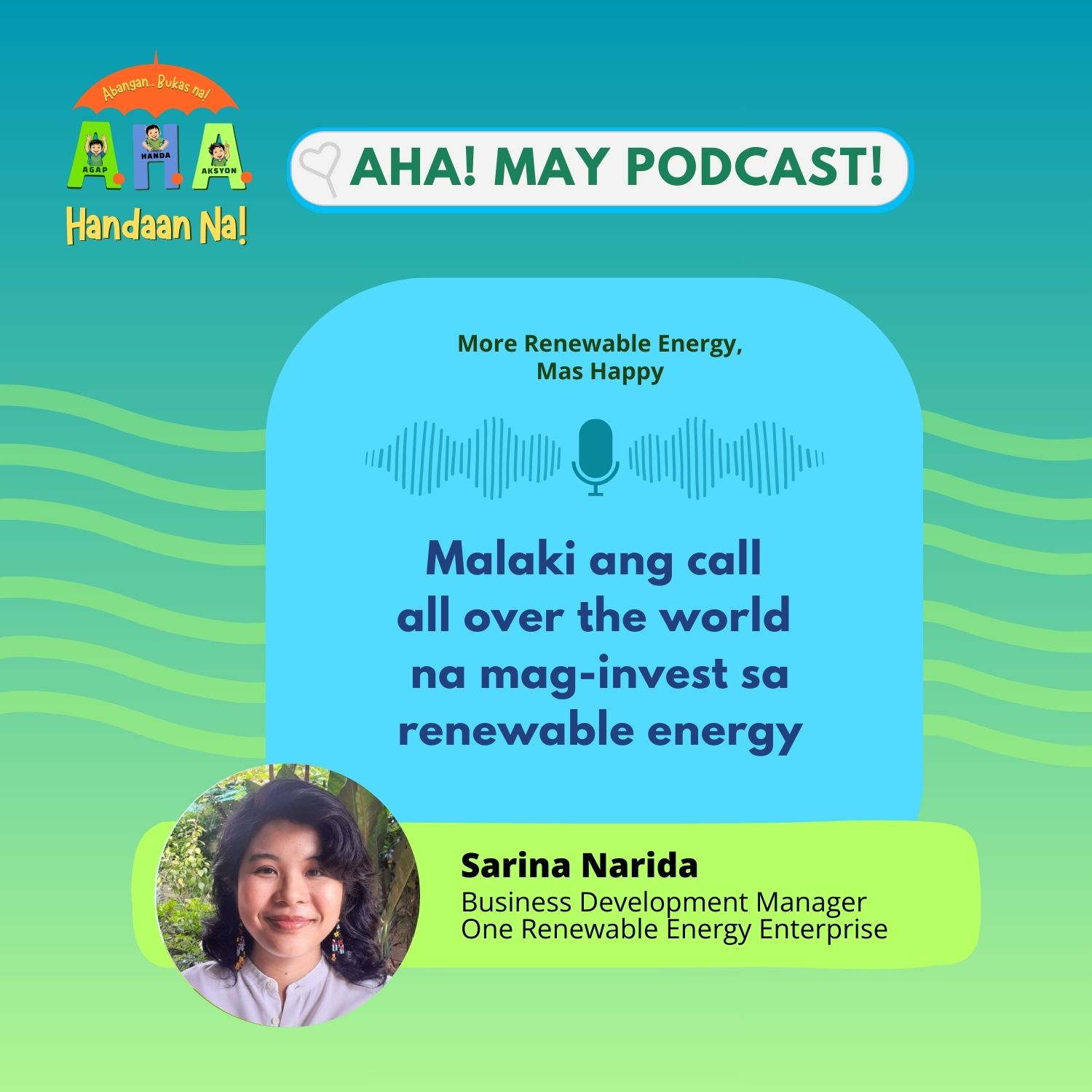Climate change permeates our daily lives and even in our monthly expenses. For the month of August, A.H.A.! May Podcast! explored the issues of energy, water, transportation, and the housing crisis. It raised important questions and conversations that require attention when fragile communities bear the brunt of the environmental backlash.

Is it time to shift to solar energy? The month began with a discussion on renewable energy. Sarina Narida of the One Renewable Energy Enterprise shared the acronym BIGSHOW, which stands for Biomass, Geothermal, Solar, Hydro, Ocean, and Wind Energy. Belinda Formanes of Tatalon Nanay Power shared how solar powered charging stations helped them communicate during typhoons. Jawo Jayme of 350 Pilipinas explained the concept of ‘Just Transition’, where workers and low-income communities will not be displaced in the transition to greener, sustainable sources of energy.
Is it time to invest in social housing? For urban poor communities, there is no choice but to be “madiskarte.” Many housing units remain substandard—when it rains, it floods; when it’s hot, the heat is extreme. They cannot go to school or go to work. Hans Bautista of Inklusibo related the housing crisis to the climate crisis. Communities have their own initiatives to adapt to the changing climate, which include agroecology and cleanup drives. He stressed the need for collective action, demanding accountability and long-term solutions. Policies should place the environmental agenda upfront to create spaces for climate resilience.
Is it time to replace the jeepney? The conversation on public transportation has been ongoing since 2017. Architect Leonard John Sarao urges the public to support local and explore possibilities to redesign the jeepney. He cited that one option would be to retrofit the existing jeepneys with environmentally-sound engines instead of disposing of them, which would result in a surplus of scrap materials. Active mobility is also encouraged by the Quezon City Green Transport Office. They ensure that communities are part of the plan by consulting them in drafting the 3-year Active Mobility Master Plan. Senior citizens, Persons with Disabilities, and women are represented during workshops.
Is it time to build dams with the looming water crisis? Professor Emeritus Rex Victor Cruz stated that the entire Philippines is a watershed. Watersheds are important as they act as catchment areas of water, eventually absorbed by land. One challenge, however, is land conversion. Forests are converted into agricultural land, and then these are converted into residential areas. There is a growing population and a growing demand, yet the resources are limited and depleting. Dams and other infrastructure have their own functions, but the cost and tradeoffs should be considered. It requires an in-depth study and critical analysis to ensure that development is not at the expense of the people.
Balancing people, planet, and profit or progress is not an easy task. And yet, it is our responsibility to future generations who will inherit the questions left unanswered. There is no other time but today.
